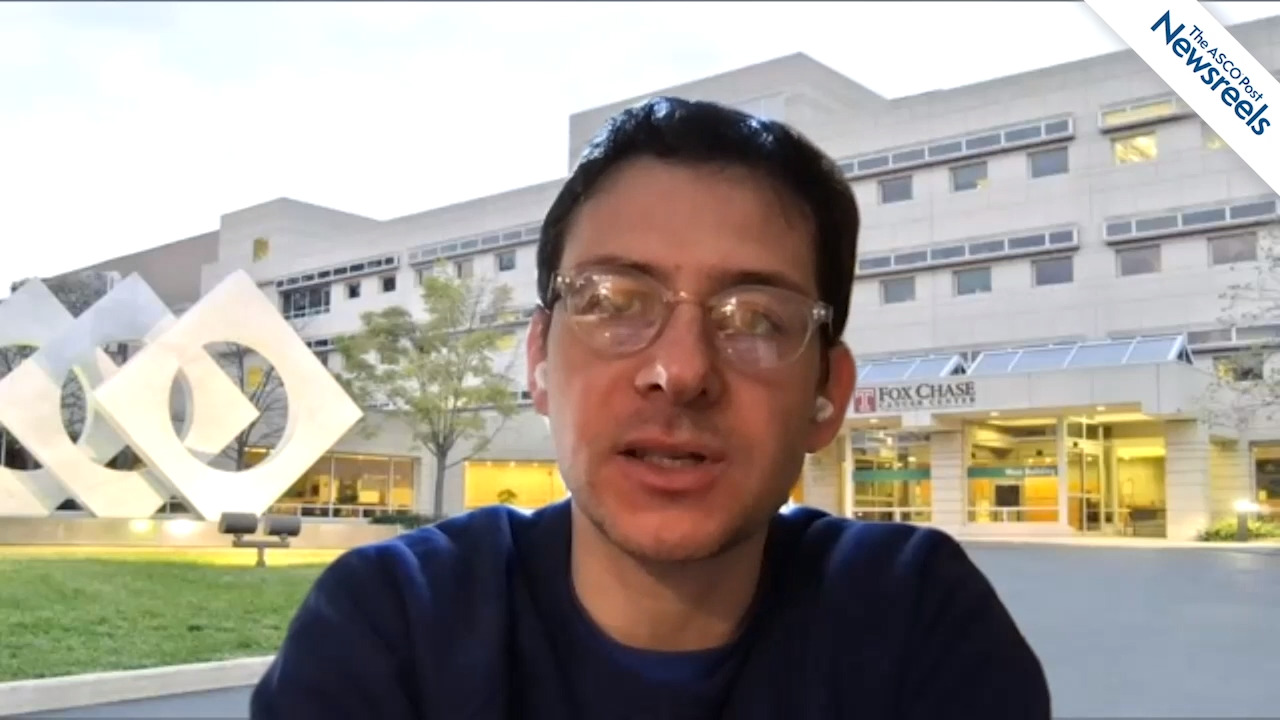Sumanta K. Pal, MD, on Papillary RCC: Sunitinib vs Cabozantinib, Crizotinib, or Savolitinib in Metastatic Disease
2021 Genitourinary Cancers Symposium
Sumanta K. Pal, MD, of City of Hope, discusses phase II results from the SWOG 1500 study, which showed that compared with crizotinib and savolitinib, cabozantinib was the only agent that prolonged progression-free survival vs sunitinib in patients with metastatic papillary renal cell carcinoma (Abstract 270).
The ASCO Post Staff
Daniel M. Geynisman, MD, of Fox Chase Cancer Center, discusses phase II results from the RETAIN BLADDER study, which sequenced bladder tumor samples while treating patients with neoadjuvant methotrexate, vinblastine, doxorubicin, and cisplatin chemotherapy. The goal was to increase metastasis-free survival and also preserve the bladder and quality of life (Abstract 397).
The ASCO Post Staff
Elizabeth R. Plimack, MD, of Fox Chase Cancer Center, discusses phase III results from the KEYNOTE-426 study—specifically, an exploratory subgroup analysis of patients with advanced renal cell carcinoma who were randomly assigned to receive pembrolizumab plus axitinib and completed 2 years of treatment (Abstract 327).
The ASCO Post Staff
Monika Joshi, MD, of Penn State Hershey Cancer Institute, discusses phase II results from the DUART study, which explored the efficacy of concurrent durvalumab, a checkpoint inhibitor, and radiation therapy followed by adjuvant durvalumab in patients with localized urothelial cancer of the bladder (Abstract 398).
The ASCO Post Staff
Felix Y. Feng, MD, of the University of California, San Francisco, discusses study findings showing that molecular determinants may help clinicians select patients with nonmetastatic castration-resistant prostate cancer who may derive the most benefit from apalutamide and other androgen-signaling inhibitors (Abstract 8).
The ASCO Post Staff
Sumanta K. Pal, MD, of City of Hope, discusses findings of the TIVO-3 study, which showed that the tyrosine kinase inhibitor tivozanib improved progression-free survival vs sorafenib in patients whose advanced renal cell carcinoma progressed after multiple lines of therapy (Abstract 278).





